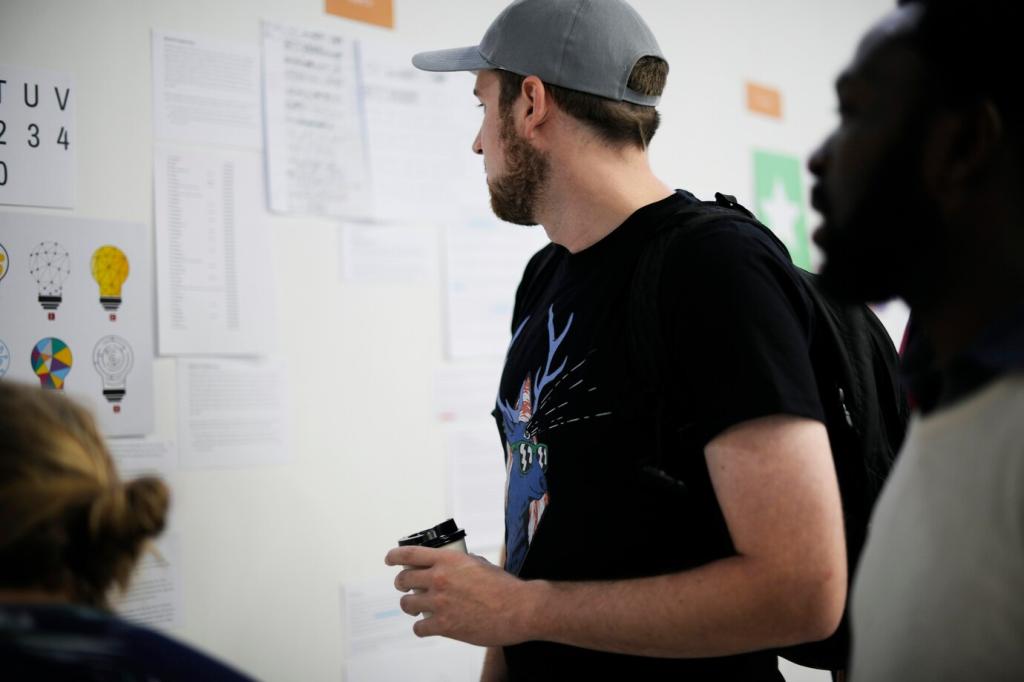Building Consultative Expertise in Cutting-Edge Technologies
In today’s rapidly evolving digital world, consultative expertise in cutting-edge technologies is not just an asset; it’s a necessity. Organizations across industries are seeking advisors who can interpret technological advancements, connect innovation to business strategies, and enable sustainable growth. Developing such an expertise involves deep technical knowledge, keen business insight, and the ability to communicate complex ideas with clarity and confidence. This page explores the process and strategies required to build world-class consultative capabilities in the dynamic realm of new and emerging technologies.

Understanding the Role of a Technology Consultant
Defining Consultative Expertise in a Digital Landscape
Consultative expertise is characterized by more than technological proficiency—it involves holistic problem-solving, critical thinking, and empathetic communication. To thrive in the digital landscape, consultants must keep pace with rapid advancements, understanding not only how technology works but also how it can be strategically applied to address organizational challenges. Being effective requires continuous learning and the ability to contextualize technology within the unique workflows, cultures, and objectives of each client.
The Evolving Nature of Cutting-Edge Technologies
What makes technology “cutting-edge” is its novelty and transformative potential. Artificial intelligence, blockchain, quantum computing, and IoT are examples of technologies that are reshaping industries. A consultative expert must not only grasp the technical underpinnings of these advancements but also anticipate their far-reaching business implications. This proactive understanding is what sets true technology consultants apart from traditional technologists.
Consulting as a Catalyst for Organizational Change
The most valuable technology consultants serve as catalysts for lasting change. Their expertise is employed not just to implement new solutions, but to influence culture, process, and mindset within organizations. By facilitating knowledge transfer and leading by example, technology consultants empower organizations to become more innovative and adaptive, making their roles essential to successful digital transformation.
Strategies for Developing Deep Technical Proficiency
Pursuing Continuous Learning and Certification
The fast-changing nature of technology means yesterday’s knowledge quickly becomes outdated. Consultants must, therefore, invest in lifelong education—participating in accredited certification programs, online courses, and industry forums. This commitment ensures that they remain authoritative sources of information for clients, capable of discerning which technological trends are most relevant and reliable in any context.


Gaining Hands-On Experience Through Real-World Projects
Textbook knowledge alone cannot foster true consultative expertise. Practical, hands-on experience in designing, deploying, and optimizing technologies is critical. By engaging in diverse projects, consultants build a nuanced understanding of common pitfalls, best practices, and deployment strategies. This firsthand experience allows them to provide pragmatic, actionable insights that move beyond theory to real-world applicability.

Translating Complexity Into Clarity
One hallmark of an exceptional consultant is the ability to distill highly technical concepts into clear, compelling narratives. Whether engaging with technical peers or business decision-makers, consultants must adapt their language and analogies, stripping away unnecessary jargon while preserving technical accuracy. This translation work builds trust, fosters collaboration, and accelerates stakeholder buy-in for advanced technology initiatives.

Facilitating Productive Client Engagements
Every consultation is an interactive process—one that must foster mutual understanding and open dialogue. Expert consultants excel at active listening, insightful questioning, and empathetic engagement, ensuring they fully grasp each client’s unique challenges and aspirations. By creating a collaborative environment, they guide stakeholders from initial interest through to confident adoption, paving the way for successful technology projects.

Presenting Data-Driven Recommendations Effectively
In the digital era, decision-making must be informed by data rather than intuition alone. Technology consultants are responsible for interpreting complex datasets, extracting meaningful insights, and presenting findings in ways that inform strategic action. Mastery of data visualization tools, storytelling, and decision frameworks ensures that their recommendations are not only technically sound, but also easy to implement and scale.
